Telehealth Newsletter
Official Newsletter of Telemedicine Society of India

What is New?
The past few weeks have been remarkable for the digital health community, with clear momentum around collaboration, education, and responsible innovation.
First, a reminder – we are now less than 60 days away from TELEMEDICON2025, to be held at the Indian Institute of Science, Bangalore. If you haven’t registered, visit telemedicon.in and secure your place at this landmark event.
The TSI-AADH Joint Webinar highlighted the power of cross-border collaboration, blending Armenia’s and India’s experiences to advance telehealth solutions with global relevance. Closer home, the Telangana Chapter’s workshop brought together students, clinicians, startups, and policymakers, with vibrant poster presentations and innovation showcases reflecting how the next generation is ready to shape the future of telemedicine and AI in healthcare.
On the global stage, the Digital Health Summit 2025 in Mumbai set a new benchmark with the launch of the AI Pyramid Framework and the Hippocratic Oath for the Digital Age – reminders that ethics, trust, and equity must remain central as healthcare embraces digital transformation.
This issue also explores scientific frontiers – from AI-powered meal planning to smart hydrogels for wound care – showing how innovation is steadily moving from research into real-world practice.
What is new today is not just the pace of change, but the shared responsibility to ensure it remains patient-centric, inclusive, and ethical.
Thank You
Dr. Sunil Shroff
Chief Editor
President-Elect, TSI
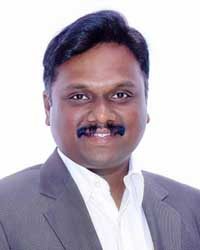
TSI–AADH Joint Webinar on Telehealth & Digital Health
Prof. (Dr) Umashankar S.
Managing Director Med.Bot | Honorary Secretary, Telemedicine Society of India
The Telemedicine Society of India (TSI), in collaboration with the Armenian Association of Digital Health (AADH), organized a joint webinar on 12th September 2025 to strengthen international cooperation in digital health.
The program featured eminent speakers from India and Armenia, who shared insights on telehealth innovations, rural outreach models, remote ICU experiences, and digital health education.
Session Highlights:
The session commenced with a warm welcome by Dr. Umashankar S, Honorary Secretary of TSI, setting the tone for an engaging and collaborative program.
The President of TSI Dr. Prem Nair, highlighted the importance of digital health in India’s healthcare transformation and emphasized the society’s commitment to building global collaborations.
Dr. Ganapathy, a pioneer in telemedicine, presented India’s telehealth landscape, tracing its evolution, achievements, and the role it continues to play in expanding healthcare access.
Dr. Chaltikyan introduced the Master of Digital Health Alliance program, emphasizing the role of structured education in building the next generation of digital health leaders.
Dr. Murthy Ramila provided an overview of the collaboration between TSI and AADH, underscoring the potential for cross-learning and co-developing solutions for global health challenges.
Mr. Sawarkar presented the Neurosynaptic experiment, demonstrating how innovative solutions can extend telehealth to remote populations at scale.
Dr. Rawal spoke about the Remote ICU model, sharing real-world examples of how tele-ICU solutions are saving lives by extending specialist care to distant hospitals.
Dr. Ohannessian shared Armenia’s digital health landscape and opportunities
Dr. Sunil Shroff, explored collaborative opportunities between the two associations.
The event concluded with a vote of thanks by Dr. Krishna Kumar, reaffirming the commitment of TSI and AADH to foster innovation, education, and sustainable global partnerships in digital health.
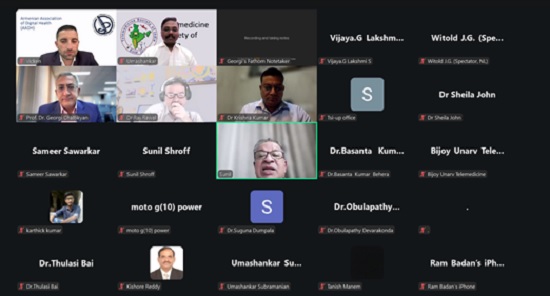

Transforming Healthcare: From Ancient Insights to AI Innovations
20th September 2025 | ESIC Medical College, Hyderabad
Dr Akhila Kosuru
Secretary TSI Telangana
CEO & Co-founder – Augsidius Health
The Telemedicine Society of India – Telangana Chapter conducted a half-day workshop on “Transforming Healthcare: From Ancient Insights to AI Innovations” in collaboration with ESIC Medical College as the venue partner on 20th September 2025.
The event was proudly sponsored by KIMS Sunshine, Maheswara Medical College, Rijuven, Augsidius Health Technologies, Diginerve, and Pleapoint Consulting, with Hybiz TV as the media partner providing live coverage streamed on YouTube.
Participation & Engagement
The workshop witnessed an overwhelming response with 390 registrations from a diverse audience, including medical students, biomedical engineers, practicing doctors, healthtech startups, NGOs, and faculty and administrators from medical institutes.
Adding further vibrancy, six healthcare startups and companies exhibited their innovations, gaining significant visibility, business leads, and stakeholder interest.
Institutional partners including KIMS-Sunshine, Rijuven, Diginerve, Medmokk, Maheswara Medical College, ESIC Medical College, Pleapoint Consulting, Augsidius Health Technologies, and Paras Medical Book Publishers extended their grand support with strong brand presence throughout the event.
Poster Presentation Competition
A highlight of the day was a poster presentation competition on “Utilisation of Digital Health in Modern Medicine”, which saw enthusiastic participation with 15 posters showcased. The top three presenters were recognized and awarded for their innovative contributions by the jury consisting of Professor Dr Dinaker – General Medicine, Professor Dr Nagaraju – Maheswara Medical College, Dr Srinivas – Consultant Orthopedics and Dr Shivani Kailashchand Jain – Telemedicine Physician and EC Member of TSI Telangana.
The program commenced with a warm welcome by Professor Dr. Rajiv – Professor of Medicine, ESIC Medical College, setting a collegial tone for the day.
This was followed by a video message from Shri Ramachandra Vishnubhatta, President of TSI Telangana, who joined virtually from the USA. In his message, he expressed his delight in seeing the chapter host such an important program and conveyed his wholehearted support for its initiatives.
Dr. B.V. Krishna Rao, Senior Director of Maheswara Medical College and Vice President of TSI Telangana, then introduced the vision of the society and the state chapter for the current term. He highlighted the benefits of membership, while emphasizing that this workshop was the first in a planned knowledge series under the chapter’s grand vision. He also extended a special invitation to students to establish student chapters, assuring them that the society would support their efforts in gaining knowledge and exposure beyond conventional boundaries.
The Chief Guest, Dr. Radhika, Medical Superintendent of ESIC, shared her practical experiences with Tele-Ophthalmology, drawing attention to both its promise and its challenges. She highlighted how the success of telemedicine often depends on operational factors at the tele-centers, such as the functionality and ease of use of the software, and equally on the patient side, where issues like internet connectivity and access to technology can significantly impact the quality of care. She further emphasized the importance of doctors in India focusing on curating India-specific healthcare datasets to train AI models that are more relevant and effective in the local context. Her reflections not only brought real-world nuances into the conversation but also provided an inspiring direction for the scientific sessions that followed, urging participants to think about solutions rooted in ground realities.
Scientific Sessions
The program featured insightful talks by seven eminent speakers, covering diverse perspectives:
Prof. Dr. Sadhna Sharma – Delivered a comprehensive overview of Telemedicine, tracing its growth, challenges, and potential to bridge healthcare access gaps. Her session covered the fundamentals of Telehealth and Telemedicine, ranging from online consultations to remote patient monitoring. What stood out was her ability to translate complex concepts into relatable insights, particularly around the practical implementation of telemedicine, setting the right expectations for patients, and structuring an effective tele- consultation. The session reflected her dual strength as both a seasoned telehealth physician and an experienced teacher, evident in the clarity and depth with which she engaged the audience.
Dr. Akhila Kosuru – Presented on “Demystifying AI in Healthcare”, offering a grounded perspective on how AI can serve as an augmenting intelligence to ease clinician workload and enhance decision-making. She highlighted the fundamentals of decision-support systems, the importance of a critical understanding of open-source LLMs – including their strengths and limitations and the pivotal role of doctors as early adopters, validators, and co-creators of AI rather than passive end-users. Drawing from her own journey in health-tech innovation, she shared how her team is designing solutions like AstraAI – an AI agent and thinking companion for doctors and medical students. Her talk left the audience with a promising outlook on how clinician-driven AI can reshape medical practice.
Ms. Ifrazunnisa Khan – Delivered an insightful session on India’s New Data Protection Law, outlining its far-reaching implications for healthcare data security and compliance. She contextualized the discussion within the evolving landscape of telemedicine and artificial intelligence, which naturally prompted numerous audience queries on patient privacy, secure digital practices, and legal responsibilities. As an advocate, she addressed these concerns with remarkable clarity and patience, explaining the rights, regulatory frameworks, and practical steps needed to navigate this space responsibly. Her session not only demystified the legal nuances but also reassured participants on how to align innovation with compliance.
Dr. Rahul Lakshminarayanan – Spoke on the relevance of AI in vascular imaging and intervention, highlighting its potential to enhance diagnosis and treatment precision. He noted that surgical fields remain relatively uncharted territory for AI, where adoption is still at an early stage. Drawing on global practices, he shared practical use cases that represent low-hanging opportunities for innovation in vascular care. His talk emphasized the enormous potential outcomes AI could unlock in this domain and the growing interest it is generating. By the end, his presentation served as a call to innovators to explore the fusion of AI with vascular surgery, opening avenues for impactful advancements.
Dr. Snigdha Mokkapati – Spoke on the impact of oral health on general health, emphasizing that the mouth often serves as a window to systemic health, with strong associations to conditions such as cardiovascular disease and diabetes. She highlighted how oral health remains a relatively neglected area in preventive care and shared her vision of integrating oral health screening into general health screening programs. Introducing her innovation, the D-Oral device, she explained how it is being deployed in population screening to not only increase visibility of oral health issues but also provide better interpretation and early detection prospects. Her session underscored the importance of elevating oral health within the broader public health agenda.
- Dr. Hima Bindu – Joined as a guest speaker, bringing her perspective as a clinician and entrepreneur. She is the Founder of Angel Eyes, an AI-driven platform that connects people with the right doctors, and Co-Founder & COO of Salubrity, an award-winning health-tech startup. In her talk, she introduced these innovations, speaking about how AI can be applied to areas such as nutrition, hair health, and digital care. Her session not only highlighted the recognition her ventures have received at forums like the Global AI Summit 2024 and T-Hub Hackathon but also inspired the audience to view the role of doctors as entrepreneurs and innovators in shaping the future of healthcare.
Program grandly ended with vote of thanks delivered by Mr Uma Mahesh Katta.
Organizing Committee
The successful execution of the workshop was made possible by the dedicated efforts of the Organising Committee:
– Mr. Uma Mahesh Katta – Vice President – Rijuven, Treasurer TSI Telangana
– Mr. Errabelli Ram Mohan – Program Coordinator
– Ms. Shivani Jain – Program Coordinator, EC Member Telemedicine Society of India – Telangana Chapter
– Dr. Srinivas – Associate Professor, Maheswara Medical College
– Professor Dr. Rajiv – Professor of Medicine, ESIC Medical College (Chair, Organising Committee)
Special thanks were also extended to the volunteers and ESIC team for their tireless support.
Acknowledgement
The Telemedicine Society of India – Telangana Chapter extends its heartfelt gratitude to the sponsors, speakers, institutional partners, participants, and volunteers for their invaluable contributions.
Their collective support and active involvement ensured the workshop’s success and reinforced the vision of advancing healthcare through technology, innovation, and collaboration.
The program concluded on a high note, leaving participants with renewed inspiration and a positive outlook on the transformative impact of digital innovations in medicine. The students, in particular, expressed great excitement about their participation, reflecting the enthusiasm of the next generation to engage in healthcare innovation and digital transformation.
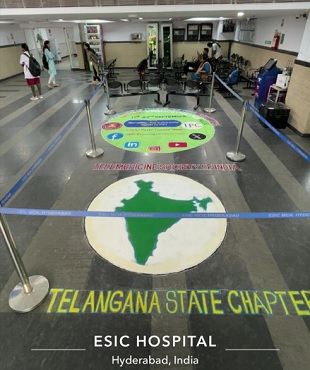
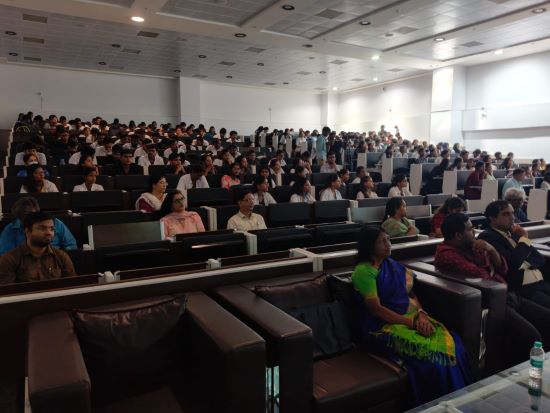
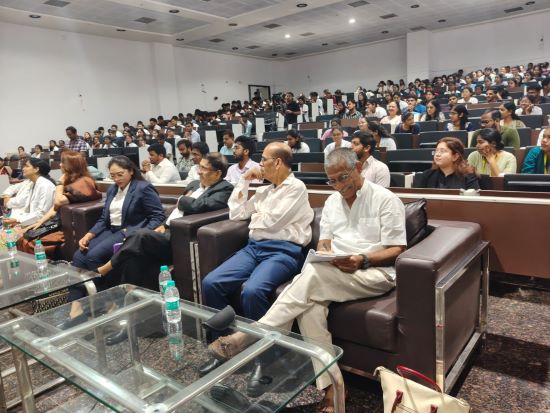
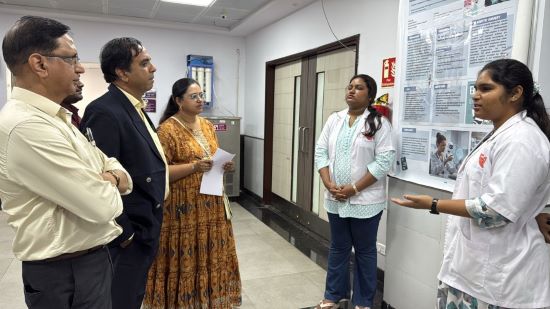
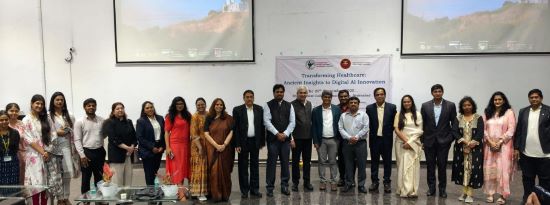
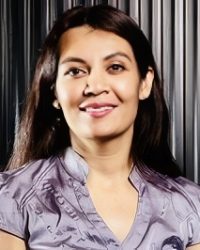
How AI Is Revolutionizing Healthy Meal Planning
Dr. Trupti Shirole
BAMS (Bachelor of Ayurvedic Medicine and Surgery)
Content Writer, Medindia.net
Healthy eating often sounds simple- but in real life, busy schedules, family commitments, and countless food choices make it hard to stick to a balanced diet. Now, artificial intelligence (AI) is stepping in as a smart kitchen companion, promising to make healthy meal planning easier and more personalized than ever.
Why Diet Matters and Why Healthy Habits Are Hard to Keep
Global rates of lifestyle-related diseases like stroke, heart attack, obesity, and type 2 diabetes are rising. Doctors agree that active living and a nutritious diet matter, but it’s tough to break old habits, avoid junk food, and cook nutritious meals every day. The challenge is not just knowing what’s healthy- it’s staying on track in the face of temptation and life’s demands.
AI Dishes Out Personalized Meal Plans Rooted in the Mediterranean Diet
The latest research published in Frontiers in Nutrition introduces an AI-based nutritional recommendation system (AINR) that creates weekly meal plans using Mediterranean cuisine.
This approach combines taste, nutrition, and even cultural preferences for a menu plan that’s designed just for you.
The Mediterranean diet is renowned for its health benefits- balanced meals include vegetables, fruits, whole grains, olive oil, fish, dairy, and nuts, with limited red meat and sweets. Long-term studies link this dietary pattern to lower rates of heart disease and longer, healthier lives.
How Do AI-Based Meal Planners Work?
Traditional meal planning systems used mathematical or filtering algorithms to mix and match foods, but they often fell short in real-world meal prep. They couldn’t adapt to allergies, dietary restrictions, or user preferences well, and tended to repeat meals or ignore cultural differences.
AI-based systems like the new AINR overcome these hurdles by using:
Knowledge-based optimization: Rules set by nutrition experts, verified for balance and accuracy.
Machine learning: AI learns from users’ habits, expressed tastes, and lifestyle context to offer meal plans people will actually follow.
A user’s dietary profile- including allergies (like milk, nuts, or eggs), cultural needs (halal options), and even seasonal ingredients—feeds into the AI system along with their calorie and nutrition needs. From this information, the AI crafts a weekly menu rooted in Spanish or Turkish Mediterranean dishes.
Step-by-Step: What Does the AI Meal Planner Do?
To generate a weekly meal plan, the AINR goes through four main steps:
Filters meals by season and local cuisine, keeping them fresh and relevant.
Excludes anything that would conflict with your allergies or preferences.
Scores and assembles daily menus based on energy and macronutrient (protein, fat, carbs) targets.
Assembles the week’s plan, aiming for diversity (not repeating meals more than three times per week, only three servings of fish weekly, etc).
While auto-generated plans are not yet dietitian-validated, human nutrition experts oversee results to keep things safe and effective.
Benefits and Limitations of AI for Suggesting Diet Plans
The AINR system showed impressive accuracy for most groups. It filtered out foods based on allergies and cultural needs with 100% success, and most calorie and nutrition targets were met. Spanish users and Turkish women saw nearly perfect results.
Some gaps remain. The database lacked enough dairy-free or nut-free options for Spanish users with allergies, preventing viable weekly plans. Turkish male users had less accurate plans, likely due to database limitations. For the AI system to truly help everyone, researchers plan to expand the menu database and test these suggestions with real families.
More Diverse, Healthy Eating with AI
Researchers say AI-based systems “hold promise in facilitating more balanced dietary habits,” but improvements are needed, especially for people with food allergies. The next phase will involve real-world testing through intervention programs, with hopes to extend AI planning for entire families.
AI: Healthy Assistant But Not a Substitute for Human Expertise
AI can take the hassle out of planning and shopping, but human nutritionists are still essential for customizing plans and guiding those with complex health needs. With more data and smarter software, personalized healthy eating could become easier, tastier, and more achievable for everybody.

The Role of AI-Powered Conductive Hydrogels in Wound Care
Colleen Fleiss
M.SC (Bioinformatics)
Content Writer, Medindia.net
Chronic wounds—including diabetic foot ulcers, pressure sores, and joint-related injuries—remain a major strain on healthcare systems worldwide.
In response, a group of Chinese researchers has unveiled a breakthrough solution: advanced conductive hydrogel dressings enhanced with artificial intelligence, designed to enable smart wound monitoring and accelerate the healing process.
A New Era of Personalized Wound Care
This comprehensive review, led by researchers from China Medical University and Northeastern University, outlines how these smart dressings combine real-time physiological signal detection with artificial intelligence, offering a new paradigm in personalized wound care.
Real-Time Monitoring: Conductive hydrogels can track key wound parameters such as temperature, pH, glucose levels, pressure, and even pain signals—providing continuous, non-invasive insights into wound status.
AI-Driven Analysis: Machine learning algorithms (e.g., CNN, KNN, ANN) process sensor data to predict healing stages, detect infections early, and guide treatment decisions with high accuracy (up to 96%).
Multifunctional Integration: These dressings not only monitor but also actively promote healing through electroactivity, antibacterial properties, and drug release capabilities.
Key Features: Material Innovation: The review discusses various conductive materials (e.g., CNTs, graphene, MXenes, conductive polymers) and their roles in enhancing biocompatibility, sensitivity, and stability.
Smart Signal Output: Different sensing mechanisms—such as colorimetry, resistance variation, and infrared imaging—enable multimodal monitoring tailored to wound types.
Clinical Applications: The paper highlights applications in pressure ulcers, diabetic foot ulcers, and joint wounds, emphasizing the potential for home care, remote monitoring, and early intervention.
Addressing Challenges in Smart Dressings for Clinical Use
Despite promising advances, issues such as material degradation, signal stability, and AI model generalizability remain. Future efforts will focus on multidimensional signal fusion, algorithm optimization, and clinical translation to bring these intelligent dressings into mainstream healthcare.
This work paves the way for next-generation wound care, where smart materials meet smart algorithms—offering hope for millions suffering from chronic wounds.
Stay tuned for more innovations at the intersection of biomaterials, AI, and personalized medicine!
Global Digital Health Summit 2025 sets new direction for ethical and scalable transformation in healthcare
Press Release
Summit unveils AI Pyramid Framework, introduces Hippocratic Oath for the Digital Age, and builds consensus on workforce readiness, patient-centred care, and global health equity.
Mumbai, September 23, 2025 — The Global Digital Health Summit 2025 concluded in Mumbai with frameworks that will reshape clinical practice and healthcare delivery worldwide. More than 2,000 leaders from 30 countries — including clinicians, policymakers, researchers, and patient advocates — participated in three days of intensive discussions that progressed from vision to implementation to scale.
The Summit’s centrepiece was the AI Pyramid Framework, the world’s first structured model for embedding AI responsibly across healthcare systems. Dr. Rajendra Pratap Gupta, Chairman of GDHS, said, “This is healthcare’s defining moment. Artificial intelligence is not just a tool, it is a structural shift in how we design, deliver and experience care. Wherever there has been technology, it has created new opportunities, new jobs and new industries, and healthcare will be no exception. The AI Pyramid Framework is meant to guide this transformation in a responsible and structured way, ensuring that professionals are not just users of AI but creators and shapers of it.”
A defining milestone was the unveiling of the Hippocratic Oath for the Digital Age, a new pledge that redefines medical ethics for an era of technology-enabled care.
The Summit emphasized patient-centred transformation, including chronic disease management and digital therapeutics. Dr. Joseph Kvedar, Co-Chair of GDHS and Professor at Harvard Medical School, said, “We are moving from episodic to continuous care, thanks to innovations like remote patient monitoring and measurable health technologies. This is one of the most profound shifts in modern medicine.”
Equity and access remained central themes. Shri Bharat Lal, Secretary General of the National Human Rights Commission, stated, “The right to life, the right to health, the right to health care, and the right to access affordable services are all fundamental human entitlements.”
From the institutional side, Dr. Sunil Kumar Barnwal, IAS, CEO of the National Health Authority (NHA), said, “Enhancing healthcare access and quality through digitalization significantly improves the availability and accessibility of healthcare services to citizens.”
The Summit also focused on workforce readiness, offering CME and CNE credits alongside AI certification workshops, and reaffirmed the importance of the One Health approach and cybersecurity. It closed with the Global Digital Health Special and Innovation Awards, celebrating contributions already reshaping patient care.
By integrating frameworks for ethics, clinical integration, and patient-centred equity, GDHS 2025 established a new global benchmark for healthcare transformation.
About the Global Digital Health Summit
The Global Digital Health Summit, Expo & Innovation Awards (GDHS) is a leading international platform for advancing digital health. It convenes healthcare leaders across policy, clinical practice, and technology to develop frameworks for ethical, secure, and scalable integration of innovation into patient care.
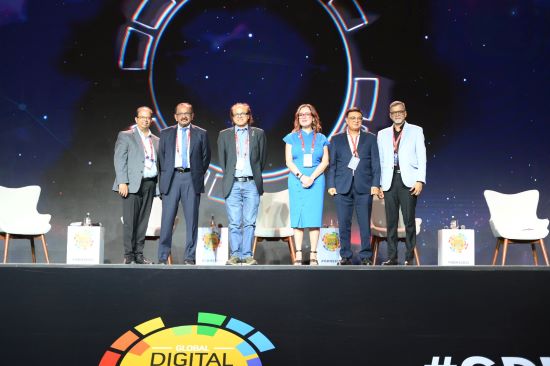
::ANNOUNCEMENTS::
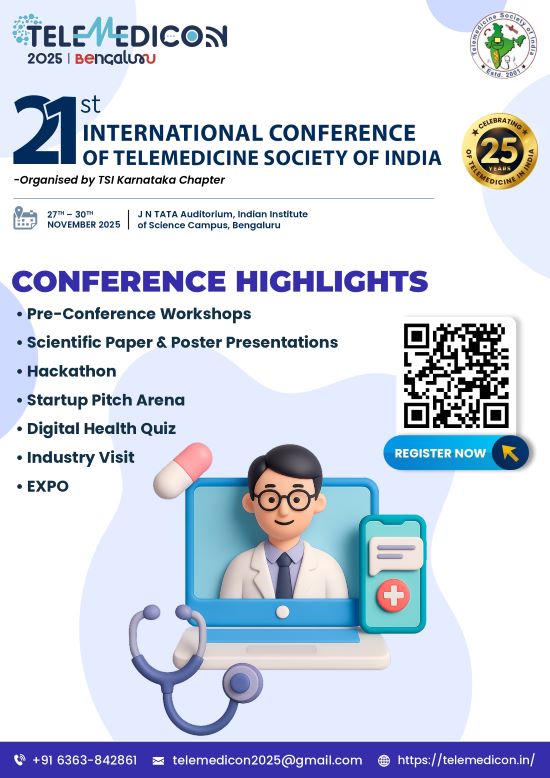
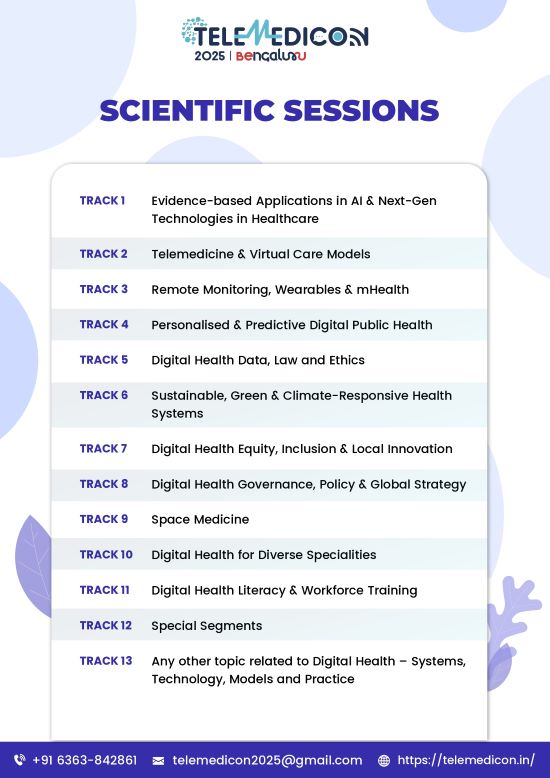
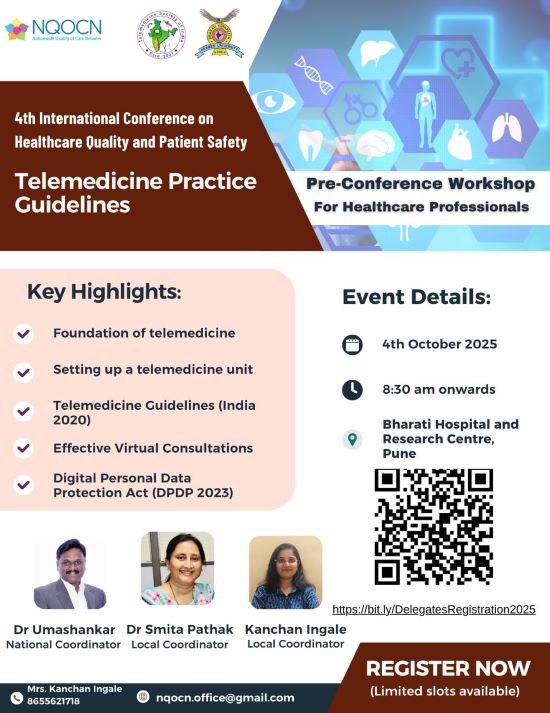
::CROSSWORD::
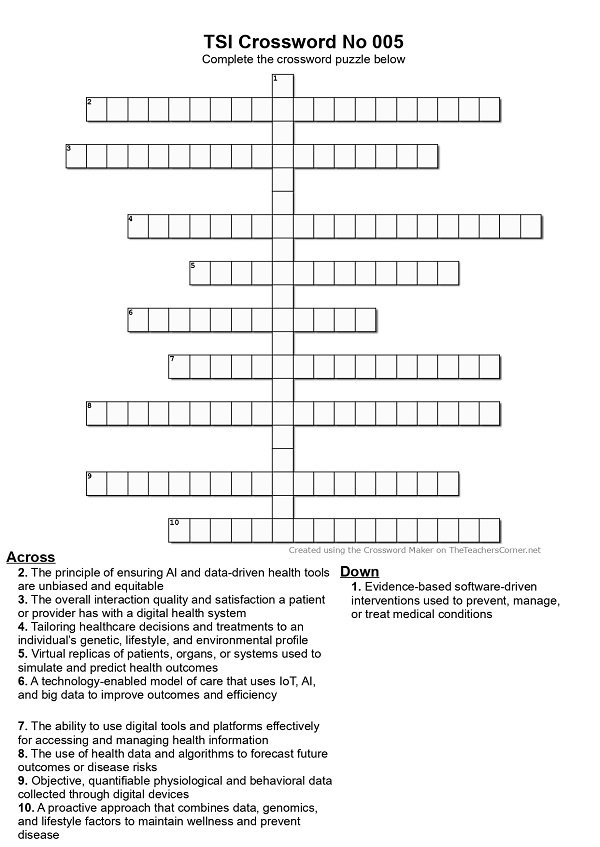
Click here to Print the Crossword
Click here to view the Crossword Rules and Regulations
Compiled by Dr.Umashankar
Answers in October 2025 Newsletter!
Telemedicine – News from India & Abroad
World’s First AI Pyramid for Healthcare Launched at Global Digital Health Summit
The Global Digital Health Summit (GDHS) 2025 opened today at the Jio World Convention Centre in Mumbai………… Read More
The Role of AI-Powered Conductive Hydrogels in Wound Care
AI-powered hydrogels offer innovative solutions for chronic wounds, enabling faster healing and smarter treatment……………. Read More
Breaking Barriers With AI: Can We End TB for Good?
Kangra shows how AI-powered TB screening and prevention efforts can accelerate India’s mission to end TB………….. Read More
Halicin: AI-Discovered Antibiotic That Could End Drug Resistance
Halicin, discovered using AI, represents a groundbreaking antibiotic candidate with a unique mechanism…….. Read More
Telemedicine Practice Guidelines – A Foundation Course for RMPs by TSI Faculty
To know more about the Telemedicine Foundation Course click on the link below:
https://tsitn.org/tpg-course/
Medical Writing Certificate Course with Internship Opportunity!
TSI invites all the TSI Chapters and Members to submit information on their upcoming Webinar or Events (50 words), News related to Telemedicine (200 words) or short articles (500 words) for the monthly e-newsletter.Guidelines for submission to TSI Newsletter-
- Report can be from 500 to 600 words
- Report Should be relevant to Telemedicine or Medical Informatics
- No promotion of self or any product
- Avoid plagiarism
- All references should be included
- Provide any attributions
- Visuals are welcome including video links
- Send full authors name, degrees, affiliations along with a passport sized photograph of good resolution. If multiple authors only main author photo to be sent.
Submission may be sent to – tsigrouptn@gmail.com
Editors reserve the rights for accepting and publishing any submitted material.
Editor in Chief – Dr. Sunil Shroff
Editors – Dr. Senthil Tamilarasan & Dr. Sheila John
Technical Partner- https://www.medindia.net

